
Gizo Island: The Hidden Gem of the Solomon Islands
Gizo Island, part of the Solomon Islands, is a paradise for those seeking a serene escape. Known for its crystal-clear waters and vibrant coral reefs, Gizo offers some of the best diving and snorkeling experiences in the world. The underwater scenery is teeming with colorful fish, making it a haven for marine life enthusiasts. But it's not just the underwater world that captivates visitors. Gizo's lush landscapes are perfect for hiking and exploring. The island is home to several charming villages where you can immerse yourself in local culture and traditions. Friendly locals will often greet you with smiles and share stories about their way of life. For history buffs, Gizo is a treasure trove. The island played a significant role during World War II, and you can still find relics and monuments that tell tales of the past. Whether you're diving into history or the ocean, Gizo Island promises an unforgettable adventure.
Local tips in Gizo Island
- Bring your own snorkeling gear to fully enjoy the vibrant marine life.
- Visit the local markets for unique handmade crafts and fresh produce.
- Respect local customs and traditions; always ask before taking photos of people.
- Check the weather conditions before planning outdoor activities.
- Hire a local guide for historical tours to get in-depth knowledge about World War II sites.
Gizo Island: The Hidden Gem of the Solomon Islands
Gizo Island, part of the Solomon Islands, is a paradise for those seeking a serene escape. Known for its crystal-clear waters and vibrant coral reefs, Gizo offers some of the best diving and snorkeling experiences in the world. The underwater scenery is teeming with colorful fish, making it a haven for marine life enthusiasts. But it's not just the underwater world that captivates visitors. Gizo's lush landscapes are perfect for hiking and exploring. The island is home to several charming villages where you can immerse yourself in local culture and traditions. Friendly locals will often greet you with smiles and share stories about their way of life. For history buffs, Gizo is a treasure trove. The island played a significant role during World War II, and you can still find relics and monuments that tell tales of the past. Whether you're diving into history or the ocean, Gizo Island promises an unforgettable adventure.
When is the best time to go to Gizo Island?
Iconic landmarks you can’t miss
Fatboys Resort
Experience the beauty of Gizo at Fatboys Resort, a tropical paradise offering luxurious stays and delightful dining in the heart of the Solomon Islands.

Dive Gizo
Explore the vibrant marine life and stunning dive sites at Dive Gizo, the ultimate diving destination in the Solomon Islands.
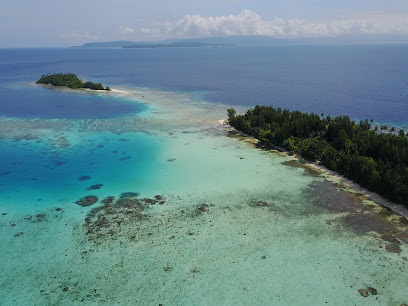
Gizo Hotel
Discover the charm of Gizo Hotel, where comfort meets the stunning beauty of the Solomon Islands for an unforgettable travel experience.
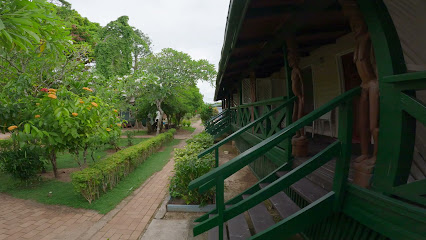
Imagination Island Coral Reef Resort
Discover the enchanting beauty and adventure at Imagination Island Coral Reef Resort in Gizo, Solomon Islands, perfect for relaxation and marine exploration.
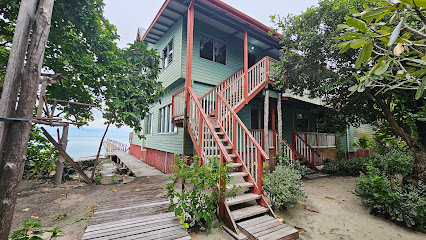
Oravae Cottage
Experience the serene beauty of Oravae Cottage, a tranquil resort hotel in Gizo, where traditional Solomon Island hospitality meets stunning ocean views.

Kasolo Island
Explore the breathtaking landscapes and tranquil beaches of Kasolo Island, a hidden gem in the Solomon Islands, perfect for nature lovers and adventurers.
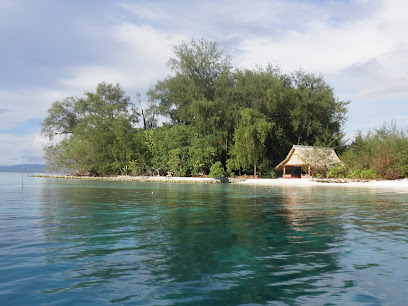
Gizo Hospital
Discover Gizo Hospital, an essential healthcare facility in the Solomon Islands, providing dedicated medical services for locals and tourists alike.
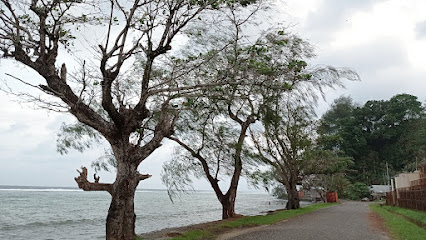
Ghizo Island
Discover the breathtaking beauty of Ghizo Island, a tropical paradise filled with stunning beaches, rich culture, and endless adventure in the Solomon Islands.
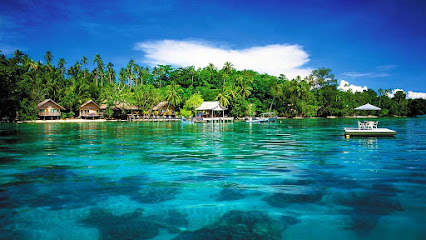
Sanbis Resort
Discover the serene beauty and vibrant culture of Gizo at Sanbis Resort, the perfect getaway for relaxation and adventure in the Solomon Islands.

Nggomu Island
Discover the serene beauty of Nggomu Island, a tropical paradise in the Solomon Islands offering pristine beaches, vibrant marine life, and rich cultural experiences.

Titiana Village (Maiaki Side)
Discover the serene beauty and vibrant culture of Titiana Village in the Solomon Islands, a perfect retreat for nature lovers and cultural enthusiasts alike.

Unmissable attractions to see
WWII Museum
Explore the profound history of World War II at the WWII Museum in Munda, where artifacts and stories bring the past to life.
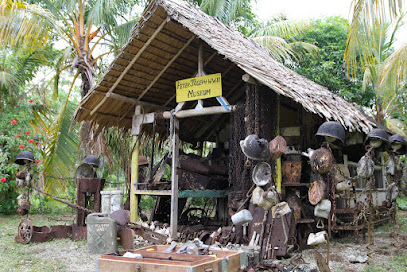
Myles Falls
Explore Myles Falls in Ringgi, Solomon Islands – a hidden gem with stunning cascades and lush landscapes, perfect for nature lovers and adventure seekers.
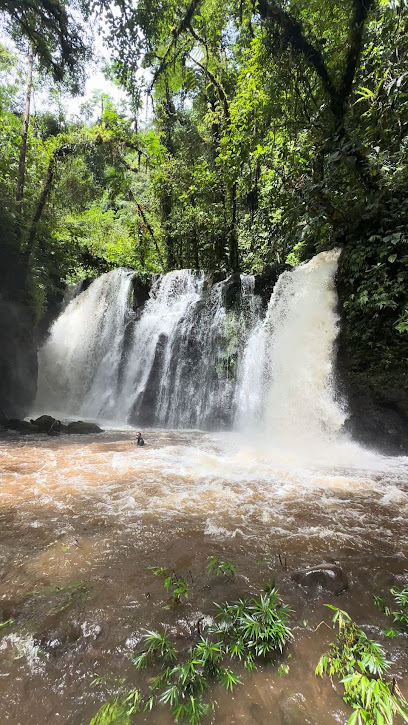
Leleana Resort Kolombangara
Experience the serene beauty of Kolombangara Island at Leleana Resort, a perfect blend of relaxation, culture, and adventure for travelers.

Pinadapada
Explore the beauty and culture of Pinadapada on Kohinggo Island, a serene paradise in the Solomon Islands offering stunning landscapes and local traditions.

Essential places to dine
Fatboys Resort
Discover serenity and adventure at Fatboys Resort in Gizo - where paradise meets exceptional hospitality.

Gizo Hotel
Experience comfort and local charm at Gizo Hotel - your ideal base for exploring the stunning Solomon Islands.
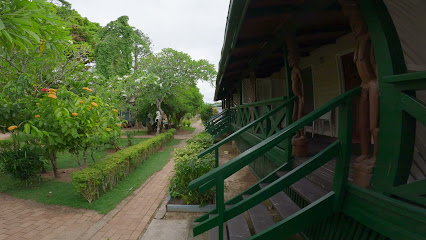
PT 109 Restaurant
Experience authentic Solomon Islands cuisine at PT 109 Restaurant in Gizo, where local flavors meet warm hospitality.
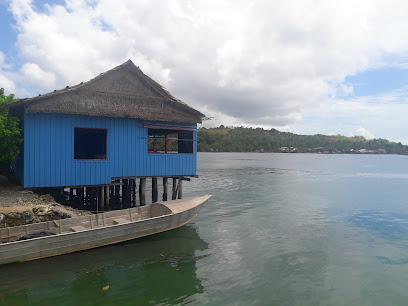
Gizo Waterfront
Experience authentic island cuisine with stunning ocean views at Gizo Waterfront – a culinary treasure in the Solomon Islands.
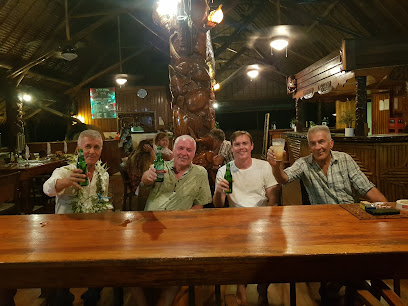
solomon island western province
Experience authentic Manado cuisine in Gizo's vibrant atmosphere, where local flavors meet breathtaking island scenery.

Naqs
Experience authentic Solomon Islands cuisine at Naqs in Gizo - a culinary gem with fresh local flavors and stunning views.

Sate bokicot
Discover authentic flavors at Sate Bokicot in Ringgi – where every dish tells a story through exquisite local cuisine.

Markets, malls and hidden boutiques
Dive Gizo
Explore the stunning underwater beauty of the Solomon Islands at Dive Gizo, a premier dive shop offering exceptional diving experiences for all levels.
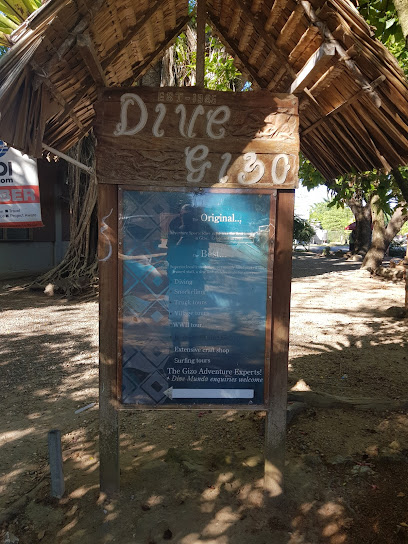
Gizo Hotel
Discover the perfect blend of comfort and adventure at Gizo Hotel, your ideal retreat in the Solomon Islands.

Imagination Island Coral Reef Resort
Immerse yourself in the breathtaking beauty and vibrant marine life at Imagination Island Coral Reef Resort in Gizo, a tropical paradise for every traveler.
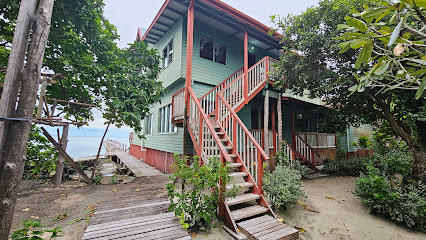
Oravae Cottage
Discover serenity at Oravae Cottage in Gizo, a beautiful resort hotel offering breathtaking views and modern amenities for a perfect island getaway.

Gizo Township
Discover the vibrant local culture, colorful markets, and stunning coastal views of Gizo Township, a gem in the Solomon Islands.
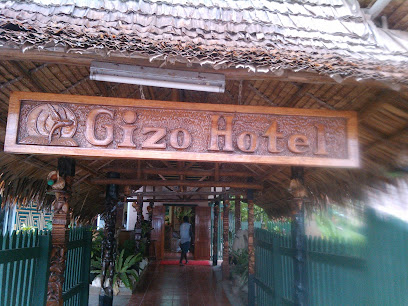
Gold Shing Trading Ltd
Discover local crafts, unique souvenirs, and the vibrant culture of Gizo at Gold Shing Trading Ltd in Chinatown.

penuna
Explore the untouched beauty and cultural richness of Ranongga Island in the Solomon Islands, an idyllic escape for nature lovers and adventure seekers.

Jononi Enterprise
Discover the convenience and local charm of Jononi Enterprise in Gizo, your essential stop for snacks, supplies, and souvenirs.
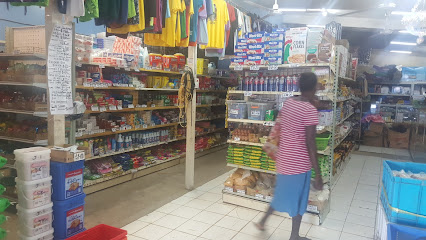
Coffee Station
Experience the serene ambiance and exquisite coffee at Coffee Station, a must-visit gem in Gizo, Solomon Islands.
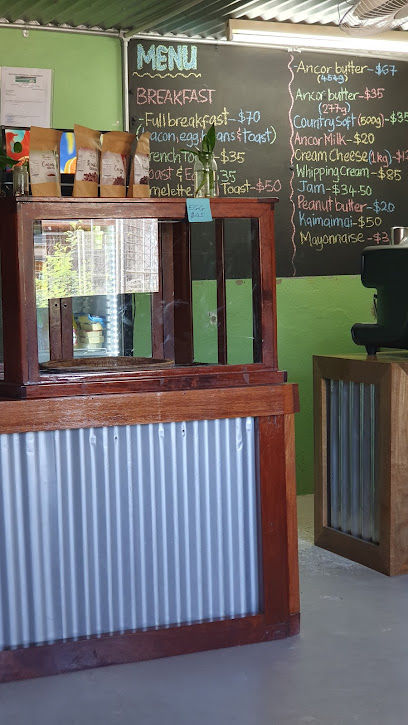
Gizo Main Market
Experience the vibrant culture and local flavors at Gizo Main Market, the heart of Gizo in the Solomon Islands.
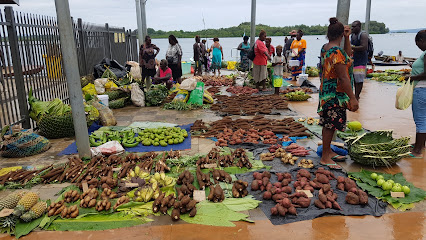
Bales & Beyond
Explore Bales & Beyond in Gizo for unique fashion finds, local craftsmanship, and a vibrant shopping experience in the heart of the Solomon Islands.
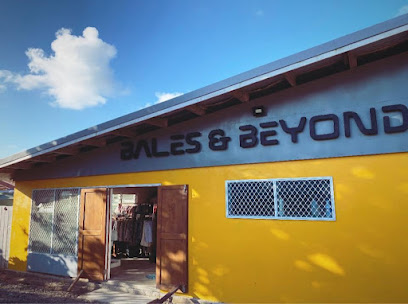
K.L&SONS
Discover quality tools and supplies at K.L&SONS, the go-to hardware store in Gizo, Solomon Islands, for all your building needs.

Solomon Brothers Bottle Shop
Explore the vibrant flavors of the Solomon Islands at Solomon Brothers Bottle Shop, your go-to liquor store in Munda for local and international beverages.
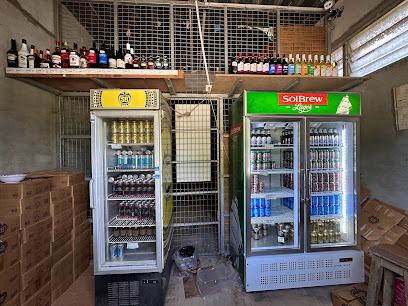
Sobi point. Togizo
Experience the heart of Togizo at Sobi Point market, where local culture, crafts, and cuisine converge in a vibrant community atmosphere.

DC - Munda Shopping Centre
Explore local culture and unique souvenirs at DC - Munda Shopping Centre, your go-to general store in the Solomon Islands.
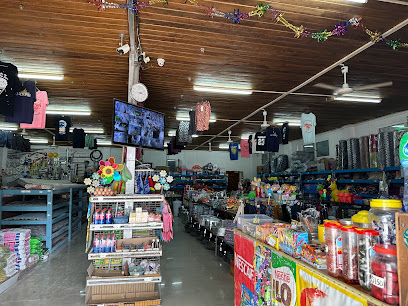
Essential bars & hidden hideouts
Fatboys Resort
Experience the charm of Fatboys Resort, a tropical paradise in Gizo offering delicious dining and unforgettable adventures.

Dive Gizo
Experience the breathtaking underwater world at Dive Gizo, a premier dive shop in the Solomon Islands, perfect for divers of all levels.
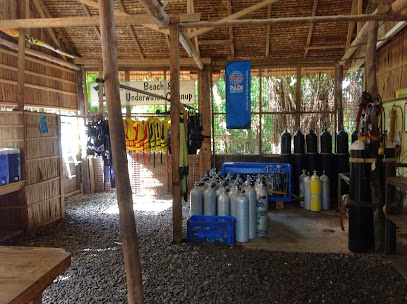
Gizo Hotel
Discover the perfect blend of relaxation and adventure at Gizo Hotel, your gateway to the enchanting Solomon Islands.

Imagination Island Coral Reef Resort
Discover the beauty of Gizo at Imagination Island Coral Reef Resort, where luxury meets adventure in a tropical paradise.
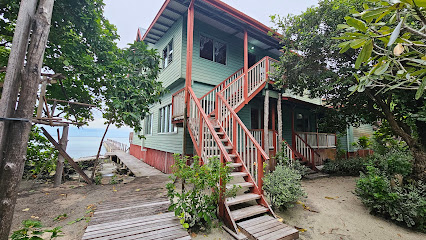
PT 109 Restaurant
Discover the culinary delights of PT 109 Restaurant in Gizo, where local flavors meet island hospitality in a vibrant coastal setting.
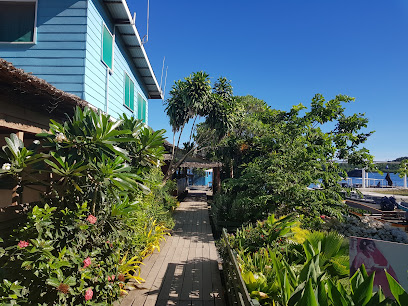
Gizo Waterfront
Experience the taste of the Solomon Islands at Gizo Waterfront, where fresh seafood meets stunning ocean views.
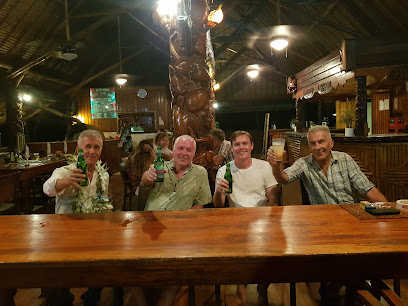
Noro Solomon
Discover the culinary delights of Noro, where local flavors and island hospitality create an unforgettable dining experience in the heart of the Solomon Islands.
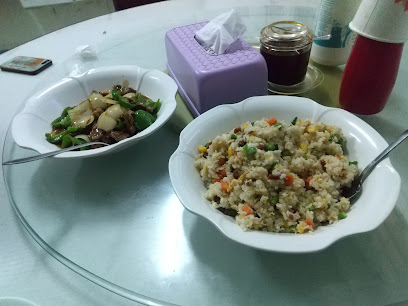
Summer Flowers
Experience the vibrant atmosphere of Summer Flowers in Munda, where local groceries meet a lively beer hall in the heart of the Solomon Islands.
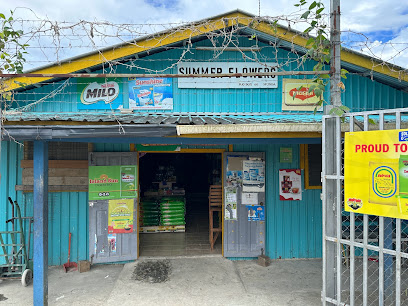
Kava Bar Munda
Experience the authentic taste of Pacific culture at Kava Bar Munda, where every sip tells a story of tradition and community.
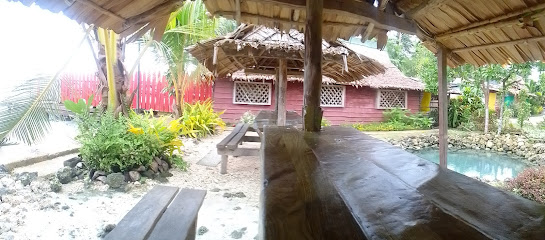
Canoe Bar
Experience the vibrant atmosphere and tropical delights at Canoe Bar in Honiara, the perfect destination for relaxation and socializing.
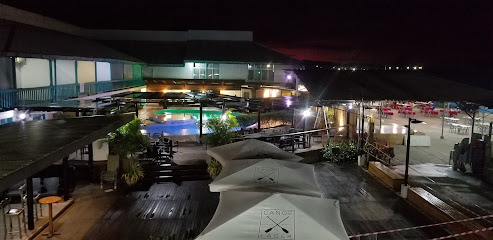
Almie Catering
Experience the vibrant culture of Gizo at Almie Catering, a stylish bar offering local flavors and stunning hilltop views.

Naqs
Experience authentic Solomon Island cuisine at Naqs, a delightful restaurant in Gizo, known for fresh seafood and local flavors.

solomon island western province
Explore the exquisite flavors of the Solomon Islands at a renowned Manado restaurant in Gizo, Western Province, where every meal is a culinary adventure.

La Masa
Experience the best fish and chips in Gizo, where fresh local ingredients meet authentic flavors in a cozy atmosphere.

Munda Bar
Experience the vibrant atmosphere of Munda Bar, where stunning waterfront views and friendly service create unforgettable moments in Munda.
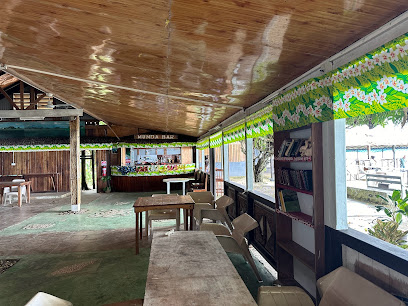
Local Phrases about Gizo Island
-
- HelloAllo
[ah-loh] - GoodbyeBye-bye
[bye-bye] - YesAe
[eye] - NoNao
[now] - Please/You're welcomePlis
[plees] - Thank youTankiu
[tan-kyoo] - Excuse me/SorrySori
[soh-ree] - How are you?Olsem wanem?
[ohl-sem wah-nem?] - Fine. And you?Bae
[bah-eh] - Do you speak English?Iu save toktok long Inglish?
[yoo sah-veh tohk-tohk long een-gleesh?] - I don't understandMi no save hem
[mee noh sah-veh hem]
- HelloAllo
-
- I'd like to see the menu, pleaseMi laek boisim menu, plis
[mee liek boy-seem menu, plees] - I don't eat meatMi no kaik abus
[mee noh kai-ik ah-boos] - Cheers!Chee
[chee] - I would like to pay, pleaseMi laek plei, plis
[mee liek pleh-ee, plees]
- I'd like to see the menu, pleaseMi laek boisim menu, plis
-
- Help!Helpim!
[help-eem!] - Go away!Go we!
[goh weh!] - Call the Police!Kolem Polis!
[koh-lem poh-lees!] - Call a doctor!Kolem dokta!
[koh-lem dohk-tah!] - I'm lostMi lusim
[mee loo-seem] - I'm illMi sik
[mee seek]
- Help!Helpim!
-
- I'd like to buy...Mi laek fo baem...
[mee liek foh bah-em...] - I'm just lookingMi jes lukim
[mee jess loo-keem] - How much is it?Hao moch hem iu?
[how mohch hem yoo?] - That's too expensiveHem tu espensiv
[hem too eh-spens-eve] - Can you lower the price?Iu save daunim praes?
[yoo sah-veh dow-nee-m prys?]
- I'd like to buy...Mi laek fo baem...
-
- What time is it?Hao taim hem?
[how tah-eem hem?] - It's one o'clockIuwan taim
[yoo-wahn tah-eem] - Half past (10)Half past ten
[hah-f passt tehn] - MorningMornim
[morn-eem] - AfternoonAftanun
[ahf-tah-noon] - EveningIvning
[eev-ning] - YesterdayYesde
[yes-deh] - TodayTude
[too-deh] - TomorrowTomoro
[toh-moh-roh] - 1Wan
[wahn] - 2Tu
[too] - 3Tri
[tree] - 4Fo
[foh] - 5Faev
[fah-ev] - 6Siks
[siks] - 7Seven
[seh-vehn] - 8Eit
[ayt] - 9Nain
[nayn] - 10Ten
[tehn]
- What time is it?Hao taim hem?
-
- Where's a/the...?Whea hem...?
[weh-ah hem...?] - What's the address?Wanem adris ia?
[wah-nem ad-rees ee-ah?] - Can you show me (on the map)?Iu save soemim mi (long map)?
[yoo sah-veh soh-eh-mim mee (long map)?] - When's the next (bus)?Hao long nao (bas)?
[how long now (bahs)?] - A ticket (to ....)Wan tiket (fo ....)
[wahn tee-keht (foh ....)]
- Where's a/the...?Whea hem...?
History of Gizo Island
-
Before the arrival of European explorers, Gizo Island was inhabited by Melanesian tribes. The island's strategic location and rich marine resources made it an essential hub for inter-island trade and cultural exchanges. Traditional practices, including fishing, canoe-building, and elaborate ceremonies, were integral to the islanders' way of life.
-
Gizo Island first came into contact with Europeans in the 16th century when Spanish explorers, led by Álvaro de Mendaña, sailed through the Solomon Islands. However, it wasn't until the late 19th century that European settlers and traders began to establish a more permanent presence on the island. This period marked the beginning of significant cultural and economic changes for the indigenous population.
-
During the early 20th century, Gizo Island fell under British colonial rule as part of the Solomon Islands Protectorate. The island's strategic location made it a focal point during World War II. Gizo played a pivotal role in the Pacific Theater, witnessing numerous naval battles and serving as a critical supply point for Allied forces. The legacy of this era is still evident today, with various war relics and memorials scattered across the island.
-
Following World War II, Gizo Island underwent significant reconstruction efforts. The island's infrastructure was rebuilt, and efforts were made to revive the local economy. In 1978, the Solomon Islands gained independence from British colonial rule, and Gizo became an essential administrative and commercial center in the Western Province. The island's rich history and cultural heritage continue to be celebrated by its inhabitants.
-
Gizo Island is renowned for its vibrant cultural heritage, which is a blend of traditional Melanesian customs and influences from European colonization. The islanders celebrate various festivals and ceremonies throughout the year, showcasing their traditional dances, music, and crafts. The local markets are a testament to the island's cultural richness, offering a wide array of handmade artifacts, fresh produce, and traditional delicacies.
-
In recent decades, Gizo Island has emerged as a popular tourist destination, attracting visitors with its pristine beaches, crystal-clear waters, and diverse marine life. The island's tourism industry has contributed to its economic development while promoting the preservation of its natural and cultural heritage. Gizo's unique blend of history, culture, and natural beauty makes it a must-visit destination in the Solomon Islands.
Gizo Island Essentials
-
Gizo Island is accessible primarily via air travel. The nearest airport is Nusatupe Airport (GZO), which is a short boat ride from Gizo town. You can catch a domestic flight from Honiara International Airport (HIR) on the main island of Guadalcanal. Solomon Airlines operates regular flights between Honiara and Gizo. Once you arrive at Nusatupe Airport, a water taxi or boat transfer can take you directly to Gizo town.
-
Gizo Island is relatively small, and many destinations are within walking distance. For longer distances, local taxis and boat services are readily available and are the primary modes of transport. You can also rent bicycles or motorbikes to explore the island at your own pace. Public transport is limited, so private transport options are often more convenient.
-
The official currency in the Solomon Islands is the Solomon Islands Dollar (SBD). Credit cards are accepted in some hotels, restaurants, and larger shops in Gizo, but it is advisable to carry cash, especially in smaller establishments and rural areas. ATMs are available in Gizo town, but it is wise to withdraw sufficient cash in Honiara before traveling to ensure you have enough funds.
-
Gizo Island is generally a safe destination for tourists. However, like any travel destination, it is advisable to take standard precautions. Avoid walking alone at night in unfamiliar areas and keep an eye on your belongings in crowded places. While Gizo does not have high-crime areas specifically targeting tourists, it is always best to stay vigilant and aware of your surroundings.
-
In case of an emergency, dial 999 for immediate assistance. Gizo has a local police station and medical facilities available. It is recommended to have travel insurance that covers medical emergencies. For minor health issues, there are pharmacies in Gizo town where you can purchase over-the-counter medications. Always have the contact information of your country's embassy or consulate in case you need further assistance.
-
Fashion: Do dress modestly, especially when visiting villages and cultural sites. Avoid wearing overly revealing clothing. Religion: Do respect local customs and traditions. Remove your hat and sunglasses when entering churches and other religious sites. Public Transport: Do be respectful and give up your seat to elderly passengers. Don't eat or drink on public transport. Greetings: Do greet people with a smile and a friendly 'Halo' (Hello). A handshake is also common. Eating & Drinking: Do try local delicacies and accept food offerings graciously. Don't refuse hospitality, as it is considered impolite.
-
To experience Gizo Island like a local, visit the local markets where you can buy fresh produce, seafood, and traditional Solomon Islands crafts. Engage with locals, as they are often friendly and willing to share stories about the island's history and culture. Don't miss the chance to snorkel or dive in the pristine waters around Gizo, known for their vibrant coral reefs and diverse marine life. For a unique experience, take a boat tour to nearby islands and explore secluded beaches and natural wonders.
Nearby Cities to Gizo Island
-
Things To Do in Taro Island
-
Things To Do in Arawa
-
Things To Do in Yandina
-
Things To Do in Honiara
-
Things To Do in Tulagi
-
Things To Do in Auki
-
Things To Do in Kokopo
-
Things To Do in Rabaul
-
Things To Do in Alotau
-
Things To Do in Kimbe
-
Things To Do in Kavieng
-
Things To Do in Lata
-
Things To Do in Port Moresby
-
Things To Do in Lae
-
Things To Do in Madang











